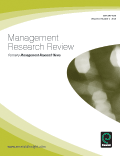Research
Impact of ISO 9000 certification on firm performance: evidence from Brazil
Purpose
The purpose of this paper is to investigate the impact of ISO 9000 certification on three dimensions of firm performance that are theoretically derived to have a relationship with the adoption of ISO 9000 standards, namely, sales revenue, cost of goods sold/sales revenue, and the asset turnover ratio (sales/total assets).
Design/methodology/approach
Employing a panel data approach covering all publicly traded companies in Brazil that had adopted the ISO 9000 standards from 1995 to 2006, the authors investigate the impact of the certification on firm performance using three categories of economic regression models: the pooling of cutting data with ordinary least squares, the fixed effects and the random effects.
Findings
ISO 9000 certification is found to be associated with an increase in sales revenues, decrease in cost of goods sold/sales revenue and increase in the asset turnover ratios of the certified firms.
Author(s):
Francisco Starke (FEA (School of Economics and Administration), Universidade de São Paulo, São Paulo, Brazil)
Rangamohan V. Eunni (Williamson College of Business Administration, Youngstown State University, Youngstown, Ohio, USA)
Nuno Manoel Martins Dias Fouto (FEA (School of Economics and Administration), Universidade de São Paulo, São Paulo, Brazil)
Claudio Felisoni de Angelo (FEA (School of Economics and Administration), Universidade de São Paulo, São Paulo, Brazil)


